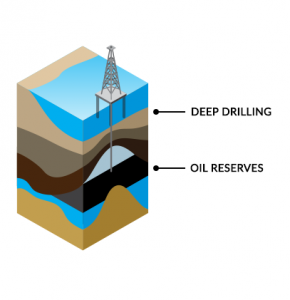All Categories
Featured
Table of Contents
5 Surface Geophysics in Booragoon Australia 2022
Are you seeking the ideal kind of b-school? Link with MBA programs seeking prospects like you. Explore schools of all sizes, ranked colleges, city and big-campus schools and more. Apply. Pay. Preparation. Study. Prosper. We've got you covered. Link with master's programs around the nation to get an edge over the competitors.

A geophysicist studies various elements of the earth. According to the U.S. Geological Study, they study gravity, magnetic, electrical, and seismic activity events. Geophysicists likewise record, evaluate, and take measurements of geographical features and anomalies. Watch a video to discover what a geophysicist: Geophysicists need to make a minimum of a bachelor's degree; nevertheless, this is for an entry-level position.
Advanced degrees need more specific research studies in the specialty of option. Task prospects are greater if you have a strong background in computer system science or technology.
Airborne Geophysical Survey in Kiara Aus 2020
Access to these chances might be restricted depending on where you live; however, internships or summer programs with geophysical business, university geophysics department, or the U.S. Geological Survey can be choices. You can discover a list of a list of chances on the United States Geological Survey (USGS) websites' Pathway Programs tab (opens in another link).
If you have yet to finish high school, taking as many science and math classes as possible would be a plus. Geophysicists also deal with computer systems while investigating, so computer system courses can also be handy, as discussed previously in this short article. Numerous geophysicists focus on an area of geophysics. For that reason, the job description would alter pending on the specialty.
A geophysicist's duties can consist of determining, tracking, and documenting information from various physical residential or commercial properties on earth. Geophysicists frequently have to travel worldwide to analyze geological events that have happened or might have been predicted.
Geophysical Survey - Mining Fundamentals in Yangebup WA 2023
For circumstances, Jay Wellik, a geophysicist, research studies volcanos. His location of competence in geophysics is looking into why volcanos erupt and what signs there might be that an eruption might take place. He tracks seismic activity and after that follows what happens previously, throughout, and after a volcano emerges. Geophysicists typically work full-time hours; nevertheless, they frequently work irregular hours, as discussed previously.

You can find additional details about Geophysicists in addition to additional instructional products on the U.S. Geological Survey website (links open in a brand-new window). Laura Stern, of the U.S. Geological Survey at the Gas Hydrates Lab in Menlo Park, California: We make a number of different hydrates in the lab.
We likewise make carbon dioxide hydrate, ethane hydrate, gas, a number of various structures. It's about 100 degrees chillier than the temperature level at which these hydrate samples would dissociate, when they would disintegrate to ice plus gas on the tabletop.
Geophysical Survey - Durham University in Kinross Australia 2023
So the samples we make, their polycrystalline. They appear like snow, it appears like compressed snow but honestly, it does consist of gas inside. Take a little piece off here and as it warms up, you'll begin to see it pop. It's reverting to ice plus gas and then as the ice would melt as it continues to warm, it will end up being water plus gas.
My name is Steve Kirby, I'm a Geophysicist here at the U.S. Geological Study in Menlo Park. I deal with Laura Stern who is also a Geophysicist in this laboratory that adheres towards the examination of planetary ices and gas hydrates. Gas hydrates in nature take place in extremely remote locations and they are very intricate with the interactions and conditions that they form under and samples that are brought up are under some sort of alternation or decay.
This is an uncommon laboratory and there are only a handful of them worldwide and we are very lucky to be here at the Geological Survey and to have the chance of dealing with them. Bureau of Labor Stats, U.S. Department of Labor, Occupational Outlook Handbook, Geoscientists. National Center for O * Internet Development.
Geophysical Survey Definition in Huntingdale Australia 2023
This video was produced by the government for the U.S. Geological Survey. The USGS Gas Hydrates Lab is funded by the Department of Energy and the USGS Gas Hydrates Task.
Latest Posts
Geophysical Surveys - U.s. Geological Survey in Wandi Western Australia 2023
Geophysics in Mount Claremont Aus 2020
Geophysical Survey in Casaurina Aus 2020